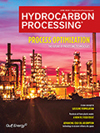Cost of U.S. diesel exports to Latin America rise on shortage
The cost for Latin American countries to import diesel via vessel from the U.S. is rising due to limited supply and increased freight costs, according to shipping sources and shipbroking data.
The U.S. exports more than 1 MMbpd of distillates, with Mexico, Brazil and Chile the top destinations, according to U.S. Energy Department figures. However, the growing shortage of distillates worldwide, particularly in Europe, has boosted demand and prices.
Exports of U.S. diesel to Europe represent a reversal of normal trade flows. At the same time, exporters are trying to maintain long-term diesel contracts with Latin America, according to two shipbrokers.
"We still have to supply Latin American and fulfill long-term contracts," said one shipbroking source.
Traders say the costs of both freight and the premium to send diesel on water-born vessels have also increased due to the European demand.
The price of ultra low sulfur diesel in the U.S. Gulf Coast has risen to $3.60, double its cost in April of 2021, according to Reuters data. One ship that recently carried diesel from Houston to the Caribbean cost $1.2 MM to charter, nearly quadruple the typical cost for that voyage, according to the sources.
Europe is seeking more diesel as it deals with reducing supply from Russia, the world's largest crude and fuel exporter, after it invaded Ukraine last month.
At least 8 medium-range clean vessels carrying ultra low sulfur diesel are headed to the Caribbean and Latin America in the next week, including ships fixed by Citgo, Valero, Phillips 66 and Repsol, according to shipbrokers and shiptracking data.
Many U.S. diesel exports are being sent to Brazil, according to Eikon shipping data and a source familiar with the matter. Brazil imports between 20% and 30% of its diesel demand.
Imports from the U.S. to Brazil should stay high until the market normalizes, according to one source familiar with the matter.
"There is no diesel available, the market is tight," said one source.
(Reporting by Laura Sanicola, additional reporting by Sabrina Valle, editing by Richard Pullin)






Comments